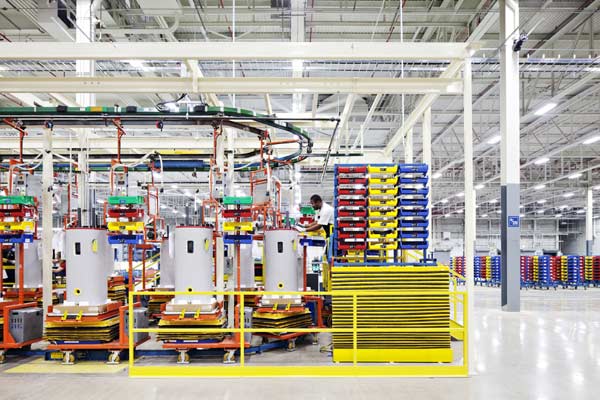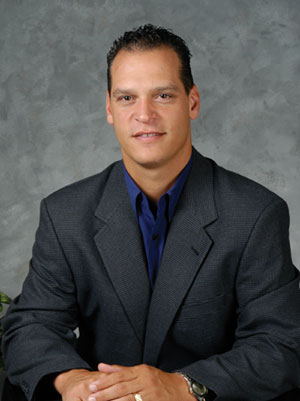US firms returning
Updated: 2012-07-11 09:45
By Joseph Boris, Ariel Tung and Qiu Quanlin (China Daily)
|
|||||||||||
Job creation plans
 |
|
GE's $38 million investment has turned a vacant US factory into a high-tech manufacturing operation. PROVIDED TO CHINA DAILY |
Immelt, who heads President Barack Obama's Council on Jobs and Competitiveness, has since 2009 announced plans to create 11,000 manufacturing jobs in the US. GE officials, including the CEO himself, have insisted the company's reshoring moves have nothing to do with politics.
"There was a business case to do this and to make money," said Scheller, the Michigan academic and outsourcing expert, referring to GE's Louisville expansion. "The tax incentive helped persuade him (Immelt) to do it now. He's looking at long-term profitability and business growth."
According to Kim Freeman, a spokeswoman for GE Appliances, reshoring has "more to do with our ability to control our own internal processes and costs". Labor and shipping costs in China are just "a piece of it", she said.
"Part of what's going up in China we are able to bring down in the US," Freeman said, pointing to the "competitive wage agreement" the appliances division reached in 2011 with its unionized US workforce. For the first time, GE Appliances employees will work according to a two-tier wage structure under which those hired after 2005 earn $13 an hour while the hourly pay of longer-serving employees begins at $22.
Equally important, Freeman said, is the "lean manufacturing" concept GE has adopted to "eliminate waste in processes or materials, and to improve product quality in the same time".
Redesigning its product line has helped lower production costs, according to Freeman. A water heater, production of which was moved to Louisville from China, is now more energy-efficient and less expensive, retailing in the US at $1,199 to $1,299 compared with $1,399 when it was imported.
GE officials said no Chinese factories were closed, nor were workers laid off. Appliances is a small part of the company's business, and any change in manufacturing locale has a limited effect on its Chinese operations, said Geoff Li, a spokesman for GE China.
The company, which has been operating in China for more than 100 years, committed in 2010 to investing $2 billion in China over three years. Each of GE's businesses - including aviation, energy, transportation, healthcare, financial services and appliances - is present in China.
GE's revenue from operations in China in 2011 was $5.7 billion. That's a small fraction of its global revenue, but represents 20 percent growth in each of the 10 years since 2002 when the number was roughly $1 billion.
In late May, the company opened its second research-and-development facility in the country, the China Innovation Center in the Southwestern boomtown of Chengdu. The new R&D center will enable GE to connect more directly with consumers across Asia, leading to products made specifically for them and based partly on their input.
"The future in China will be innovation, not just low-cost manufacturing. The goal now in China is to localize, make the products simpler, and make the products more suited for Chinese development," said Immelt when he visited Chengdu for the center's opening.
Caterpillar's new leaf
Meanwhile, Caterpillar Inc, the world's biggest maker of construction equipment and other heavy machinery, has announced that it will build an assembly plant in Victoria, Texas, to triple its existing US production capacity for hydraulic excavators. The move will improve cost efficiencies in the production of one of the company's best-selling machines.
Caterpillar, based in Peoria, Illinois, also plans to quadruple excavator production at its facility at Xuzhou in Jiangsu province to support rising demand in the Chinese market.
"We are aggressively growing operations in China," said Caterpillar spokesman Jim Dugan. "For excavators, we are increasing our capacity in China while we are also in the middle of building several other new factories in the country."
Georgia-based NCR Corp, which makes ATMs and point-of-sale electronic devices, built a plant in the US state of Georgia to redirect production in 2009. The NCR plant in China, which used to produce ATMs for US customers, now serves its growing Chinese market and other countries in the Asia-Pacific region.
 |
|
CEO Michael Campagna said Peerless, a privately held, Illinois-based maker of gear for mounting flat-panel televisions and other audiovisual devices, become more competitive on cost by consolidating its manufacturing. In late 2009, the company closed the facility in China that had accounted for about 30 percent of its output, and merged its two operations in the Chicago suburb of Melrose Park into a single facility in Aurora, Illinois, about 50 kilometers (30 miles) away. PROVIDED TO CHINA DAILY |
NCR's Chinese market is "definitely growing a lot faster" than its US counterpart, Dorsman said. By 2015, the ATM installation base in the US is expected to have grown by 4 percent, while in China the rate will have soared by 160 percent, according to Retail Banking Research, which provides information about automation in the banking industry.
Dorsman said NCR plans to add production capacity in China, either by increasing employee shifts or the number of production lines.
"We have noticed that some US companies have moved their manufacturing businesses back to their homeland from the Pearl River Delta. But these companies are traditionally concerned with lower-end manufacturing," said Feng Shengping, chief researcher with the Guangdong Situation Research Center.
Feng attributed the reshoring of US manufacturing to an economic adjustment by the US government to attach more importance to the manufacturing industry in the wake of the global financial crisis.
"The US government has come to realize that manufacturing can help partly drive its growth out of the gloomy economy. If you give too much attention to service industries, such as finance, you will lose the consumer market amid the economic turndown," Feng said.
A number of international manufacturers, many from the US, have shifted some or all of their operations following a decline in profits and an increase in the costs of labor and production that started to hit the Pearl River Delta, a traditional manufacturing hub in South China, last year.
For example, the US headphone producer Sleek Audio has moved its manufacturing base from Dongguan, in the heart of the Delta, to Florida.
"The US government's growing attachment to manufacturing is a major factor behind the reshoring. The rising costs of labor and production in China, where they previously invested, are just minor reasons," said Feng.
The reshoring trend has been well demonstrated by China's utilization of US investment in recent months, with the number of new companies approved by the Chinese authorities falling by 4.5 percent year-on-year to only 571 in the first five months of this year, according to sources with the Ministry of Commerce.
US investment increased by just 0.29 percent to $1.3 billion in the first five months of the year, according to the ministry.
Referring to US reshoring, Feng warned the authorities in Guangdong not to simply relocate traditional manufacturing businesses to other regions following a province-wide industrial upgrading policy adopted three years ago.
"Only through developing a healthy industry chain including research, finance, processing and market distribution can you improve competitiveness amid the downturn," he said.
Contact the writers at atung@chinadailyusa.com
Today's Top News
President Xi confident in recovery from quake
H7N9 update: 104 cases, 21 deaths
Telecom workers restore links
Coal mine blast kills 18 in Jilin
Intl scholarship puts China on the map
More bird flu patients discharged
Gold loses sheen, but still a safe bet
US 'turns blind eye to human rights'
Hot Topics
Lunar probe , China growth forecasts, Emission rules get tougher, China seen through 'colored lens', International board,
Editor's Picks

|

|

|

|

|

|





